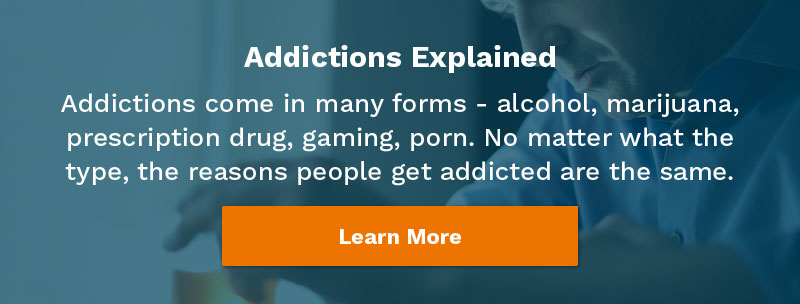
6 Min Read
Content
- Basics Of Addiction And Narcissism
- Relationship Between Addiction And Narcissism
- Q&A About Addiction And Narcissism
- How To Tell If An Addict Is A Narcissist
- What To Take Away
Are addicts narcissists? That’s a complicated question.
Some of you may wonder why you should care. Aren’t addiction and narcissism problems at the individual level and should be dealt with in one-on-one therapy?
Perhaps.
But most of us care or have cared about someone who’s experienced addiction or has narcissistic personality traits. This connection becomes particularly pronounced in close relationships, where the dynamics of dependence, self-absorption, and emotions are tightly linked.
Understanding the influence addiction and narcissism have on each other can provide insight into the why of specific behaviors and how those behaviors affect relationships.
And that understanding can help determine the best approach for handling these behaviors if they’re happening in your relationship. So, knowing if an addict is a narcissist can be of great benefit.
Basics Of Addiction And Narcissism
Before looking at how the two are connected and whether addicts are narcissists, let’s be clear on the basics of each.
Understanding Narcissism
At its core, narcissism is a personality trait characterized by an excessive preoccupation with oneself and an inflated sense of one’s own importance.
Among the hallmarks of narcissism are,
- Sense of superiority
- Lack of empathy
- Need for attention
- Entitlement
- Exploitative behavior
- Fragile self-esteem
- Difficulty maintaining relationships
Highly narcissistic people often become emotionally abusive by aggressively seeking attention, validation, and dominance over others.
Understanding Addiction
Conversely, addiction is considered a complex disorder involving the compulsive use of substances or willful engagement in behaviors despite harmful consequences.
It affects the brain’s reward system, leading to,
- Altered decision-making
- Impaired self-control
- Stimuli seeking behavior
- Disregard of negative outcomes
Addiction can encompass a wide range of substances and activities, from drugs and alcohol to gambling, gaming, porn and even work.
It should be noted that these basic descriptions are just that – basic.
Both narcissism and addiction are multifaceted and complex. There are volumes written on each, but for the purpose of understanding if addicts are narcissists, these basics will suffice.
Relationship Between Addiction And Narcissism
In just the basics outlined above, it’s evident that there’s a clear overlap between addiction and narcissism.
These commonalities include:
- Impulsivity. Both those with narcissistic traits and those struggling with addiction may exhibit impulsive behavior. Narcissists might act on their desires without considering the consequences, while addicts prioritize immediate gratification over well-being or relationships.
- Avoidance of negative emotions. Both groups may use their respective behaviors as coping mechanisms to avoid negative emotions. Narcissists seek admiration and validation to bolster their self-esteem, whereas addicts turn to substances or behaviors to numb emotional pain.
- Self-medication. In some cases, individuals with narcissistic traits may engage in addictive behaviors as a form of self-medication. They may use substances or behaviors to alleviate feelings of insecurity, anxiety, or depression stemming from their self-centered worldview.
- Underlying vulnerabilities. Both narcissism and addiction can arise from underlying vulnerabilities. Traumatic experiences, low self-esteem, and a lack of healthy coping mechanisms can contribute to developing narcissistic traits or addictive behaviors.
- Social issues and relationship impairment. Narcissists and addicts can both face social isolation and repeated broken relationships due to their behaviors. Narcissists’ self-centeredness and need for validation can strain relationships, while addicts may withdraw from social interactions, become manipulative, and prioritize their addiction over those they love.
Q&A About Addiction And Narcissism
Understanding the basics and overlap between addiction and narcissism allows us to now ask and answer two pertinent questions – Does narcissism cause addiction, and are all addicts narcissists?
Let’s take those one at a time.
Does narcissism cause addiction?
Narcissism itself doesn’t directly cause addiction, but it can make people more susceptible to developing addictive behaviors or exacerbate existing inclinations.
For example,
- Desire for pleasure and recognition. Narcissists often seek immediate gratification, pleasure, and recognition. This desire for intense positive experiences can make them more susceptible to addictive substances or behaviors that offer temporary euphoria or satisfaction.
- Grandiosity and risk-taking. Because they have an inflated sense of self, narcissists can take risks that others might avoid, including experimenting with drugs or engaging in high-risk behaviors that can lead to addiction.
- Self-medication and coping. Narcissists may use drugs, alcohol, or behaviors to escape negative emotions, stress, or insecurity. The addictive experience can provide a temporary distraction from their self-doubt or be a means of self-medication for emotional pain.
- Defense mechanism. To avoid dealing with deeper psychological issues, addiction can develop as a defense mechanism for narcissists. Instead of confronting their insecurities, they may use substances to maintain a façade of confidence.
- Combating loneliness and isolation. While many narcissists appear confident, their self-centeredness and lack of empathy can lead to strained relationships. This isolation can contribute to feelings of loneliness, which may drive them toward addictive behaviors for comfort.
- Reward cycle. The cycle of addiction, with its pattern of cravings, consumption, and temporary pleasure, aligns with the narcissistic need for immediate gratification and reward.
- Resistance to treatment. Because most narcissists resist acknowledging their vulnerabilities or problems, they often resist seeking help. This can fuel and prolong addiction.
Are all addicts narcissists?
So, if narcissism can exacerbate addictive tendencies, does that mean all addicts are inherently narcissists?
No, not all addicts are narcissists.
Dr. Kurt's been asked this numerous times. Very often the question comes from the partner of someone who's dealing with addiction. According to him,
Are all addicts narcissists? No. Can they be? Yes. At the core of any addiction is self-focus (i.e. narcissism). However, that doesn't mean an addict is a narcissist. As a doctor who treats both I can tell you there are symptoms they share in common that can make it tricky to tell which is causing what, even for the trained eye like myself. The good news is that you don't have to figure it out yourself. That's my job. Yours is just to have enough understanding of how the two can be related and impact each other. Be careful though, 'narcissist' has become an overused and misused label. Think it, but don't speak it without certainty."
While there can be overlaps and influences, the two are distinct problems that don’t always go hand in hand.
There are distinguishing and disparate factors to consider. For example,
- Diverse causes of addiction. Addiction can arise from a combination of genetic, environmental, psychological, and social factors. Trauma, mental health issues, coping mechanisms, peer pressure, and genetics are just a few factors that can contribute to the development of addiction. These factors can be independent of narcissistic traits.
- Vulnerability. Addiction can affect individuals who struggle with self-esteem and self-worth. While these struggles might share similarities with certain aspects of narcissism, they don’t necessarily imply narcissism itself.
- Different motivations. Addictive behaviors happen for a variety of reasons, including seeking pleasure, relief from physical or emotional pain, coping with stress, fitting in, or peer pressure. Not all of these motivations align with narcissistic tendencies.
So, it comes down to the fact that addiction and narcissism can be overlapping challenges for some, and both involve self-focused behavior. However, they operate on different levels and can exist separately for many.
How To Tell If An Addict Is A Narcissist
Identifying whether an addict is a narcissist requires careful observation of their behavior.
Keep in mind that accurately diagnosing narcissism or any other personality trait requires assessment by a mental health professional.
However, there are some signs that might suggest that an addict could also be a narcissist. Keep in mind that some of these are symptoms of addiction as well. Among them are,
- Lack of empathy
- Inflated self-Image
- Use of substance or behavior for attention and validation
- Exploitative behavior
- Manipulative tactics
- Defensiveness and justification
- Belief that it’s others who have a problem
- Devaluation of people and relationships that don’t benefit them
If you suspect that an addict is a narcissist, professional counseling can provide them with the tools to address both their addiction and any underlying narcissistic traits.
What To Take Away
So, again, why should I care If an addict Is a narcissist?
Earlier, I alluded to the importance of understanding the connection between narcissism and addiction for the health of your relationship with anyone who suffers from these challenges.
Let’s close the circle on that.
By recognizing whether someone you love is dealing with both issues simultaneously you can,
- Better understand their behavior. The connection can explain why they might be drawn to certain substances or behaviors and how these choices relate to their self-perception and emotional state.
- More effective communication. Understanding narcissistic tendencies can aid in communicating with the addict by helping you navigate their need for validation, attention, and recognition, potentially leading to more constructive conversations about their addiction and recovery.
- Managing expectations. Narcissists often seek instant gratification and quick fixes. Recognizing this can help you manage expectations regarding their progress in recovery.
- Address underlying issues. If narcissism contributes to their addiction, addressing these traits can be essential for long-term recovery.
- Avoid enabling. Narcissists might manipulate situations to their advantage, even in the context of addiction. Being aware of their tendencies can help you avoid enabling behaviors that inadvertently support their addictive patterns.
It’s important to note that while narcissism can contribute to addiction, not all individuals with narcissistic traits will develop addiction. Likewise, not all addicts are narcissistic.
For your own well-being, understanding the connection between addiction and narcissism can be important as well. Knowing whether an addict is a narcissist can help you set appropriate boundaries and manage your own emotions and reactions when interacting with them.
Looking for More? Check Out These Articles
- He Told Me I'm Abusive Because I Keep Threatening To Divorce Him
- I'm Pretty Sure He's Addicted To Sex - How Can I Tell?
- We're Getting A Divorce And My Emotions Are So Mixed Up!
- Get More Help with Addictions

































Comments
Currently, there are no comments. Be the first to post one!